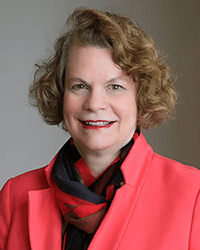From the Director

Dear Colleagues,
I am delighted to present our 2019 Research Annual Report, which reflects yet another year of remarkable scientific attainments by faculty in the Cincinnati Children's Research Foundation. Spanning the full spectrum of discovery—basic exploration of biological mechanisms, translation to patients, and improvement of community health—our achievements in 2019 have surpassed all previous benchmarks.
Among our premier scientific achievements, our organoid technology has led to a new recognition of the importance of the Sox2 protein in esophageal development. Targeting genes that prevent diet-induced obesity in mice holds promise for human intervention. Genes controlled by the biologic clock should help us dose medications with circadian precision. Understanding the genes that mediate blood vessel development in the eye may have profound implications for premature infants.
In an important double-blind, randomized trial, use of probiotics for childhood diarrhea has proved inefficacious. A multi-center trial in children with inflammatory bowel disease has identified new predictors of biological response to standard therapy. Children with sickle cell anemia in Sub-Saharan Africa have benefited from a novel point-of-care regimen for hydroxyurea dosing that has greatly improved their underlying disease and significantly decreased episodes of malaria. These are just a few of the highlights from a remarkable year.
At the close of FY19 (June 30, 2019), our faculty established yet another all-time record for extramural support, with a total surpassing $242 million dollars for extramural grants and contracts—an unquestionable victory in an era when dollars available for NIH grants have not increased. Our research performance continues to place us in the top three pediatric departments in the country.
Our faculty's collaborative spirit brings us the best of team science together with the insights of the individual investigator. Over the last five years, the TCH endowment has doubled, a fact that augurs for a bright future for new internal funding opportunities, new endowed chairs, and expansion of our research cores. These investments and the achievements they foster reflect the institution’s dedication to a collaborative, multidisciplinary culture that promises to benefit children and their families for years to come.
Margaret K. Hostetter, MD
B.K. Rachford Professor
Chair, Department of Pediatrics
Director, Cincinnati Children’s Research Foundation
Chief Medical Officer



